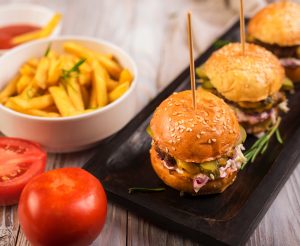
These Foods Are Common But They Spike Blood Sugar Levels
Managing blood sugar is important for people with Type 2 diabetes. Understanding how different foods impact blood sugar helps in making better dietary choices as many foods, even healthy ones, can cause blood sugar to spike significantly.
Carbohydrates are one of the basic food groups and they impact blood sugar levels the most, although other factors like fibre, protein, and fat content also play a role. The glycemic index (GI) and glycemic load (GL) are two metrics that help determine how foods affect blood sugar levels. GI measures how quickly a food raises blood sugar, while GL considers both the GI and the portion size.
While some of our common staples are obvious “dangers”, there are others that appear healthy but actually also spike blood sugar levels. Here are some common foods that tend to spike blood sugar and how to manage their impact:
White Grains
White grains, including white bread, pasta, and rice, are refined carbohydrates that have had much of their fibre removed. Fibre helps regulate blood sugar by slowing digestion. Opt for whole grains like whole-grain bread, brown rice, and quinoa, which are rich in fibre. If consuming white grains, pair them with lean proteins, healthy fats, and low-carb vegetables to moderate blood sugar spikes. For instance, combine a small serving of white pasta with chicken and broccoli sautéed in olive oil for a balanced meal.
Sweet Beverages
Drinks like soda, sweetened iced tea, and fruit juices contain high amounts of sugar and lack protein, fat, and fibre, making blood sugar control difficult. It’s best to avoid these drinks, but if consumed, limit the serving size to half a cup. To satisfy sweet cravings without spiking blood sugar, opt for sugar-free seltzers or water infused with fresh fruit slices.

Image by freepik
Fast Food
Fast food is typically high in sugar, refined carbs, and unhealthy fats, which can lead to blood sugar spikes. Many fast-food items contain as much sugar as candy bars. When fast food is the only option, minimise items like buns, breading, and sugary condiments. Choose smaller portions and healthier sides like a light salad without heavy dressing. Avoid sugary drinks and opt for water instead.
Fruit
While fruit is nutritious, it can spike blood sugar if eaten in large amounts. Fruits are high in vitamins, minerals, antioxidants, and fibre, which are beneficial for overall health. However, it is crucial to manage portions carefully: one tennis-ball-sized piece of fruit counts as one serving. Choose fresh or frozen fruits without added sugars, and if consuming dried fruits, be mindful of their concentrated sugar content. For example, two tablespoons of dried apricots contain the same amount of sugar as a whole apricot.
Starchy Vegetables
Starchy vegetables like potatoes, peas, and corn contain more carbohydrates than non-starchy vegetables. However, they provide essential nutrients and can be higher in fibre. Include them in your diet by counting them as part of your carb intake but pairing them with low-GL foods such as lean proteins and healthy fats to balance out the meal. For example, top a serving of winter squash with shredded chicken and cheese for a balanced meal.
Non-Dairy Milk
Non-dairy milks, especially oat and rice milk, can be high in sugar and may spike blood sugar. Choose unsweetened soy milk, which has lower sugar and higher protein content. Always check nutrition labels for added sugars and choose options with minimal sugar content. For example, one cup of unsweetened soy milk typically contains one gram of sugar and seven grams of protein.
By understanding how different foods impact your blood sugar and learning to balance your meals, you can enjoy a variety of foods while avoiding significant blood sugar spikes. Focus on portion control, pairing high-carb foods with protein and healthy fats, and choosing lower GI and GL options for better blood sugar management.
BUZUD’s Continuous Glucose Monitoring System (CGMS) can be an invaluable tool in managing blood sugar levels effectively. Unlike traditional methods that require frequent finger pricks, the BUZUD CGMS offers real-time tracking of glucose levels, providing immediate feedback on how different foods, such as those mentioned above, affect your blood sugar. This continuous monitoring helps users make informed dietary choices, adjust their food intakes accurately, and prevent both high and low blood sugar episodes, ultimately leading to better overall diabetes management and a higher quality of life.
DISCLAIMER
All information presented herein serves as a general guideline, and is not intended as dispensing any medical advice(s). User(s) should consult their doctor to seek further clarification for any doubt. It is recommended to refer to this guide with sole discretion, thereby we shall not be held responsible for any part of the information as presented.
REimagined Healthcare with BUZUD Care Experience at:
585 North Bridge Road, #01-02 Raffles Hospital, Singapore 188770
Call: +65 6518 9959 or Email: customercare@BUZUD.com
No Comments
Leave a Reply
You must be logged in to post a comment.
